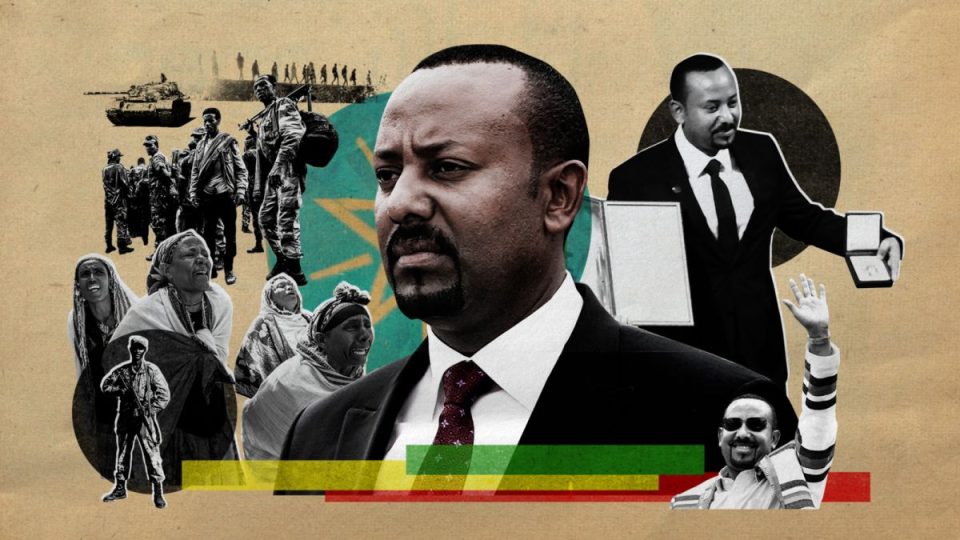A secretive committee of senior officials in Ethiopia’s largest and most populous region, Oromiya, has allegedly ordered extrajudicial killings and illegal detentions to crush an insurgency there, a Reuters investigation has found.
Reuters interviewed more than 30 federal and local officials, judges, lawyers and victims of abuses by authorities. The agency also reviewed documents drafted by local political and judicial authorities. These interviews and documents for the first time shed light on the workings of the Koree Nageenyaa, which means security committee in the Oromo language, which began operating in the months after Prime Minister Abiy Ahmed came to power in 2018. The committee’s existence has not been previously reported.
The violence in Oromiya has displaced hundreds of thousands of people. Ethiopia’s government and human rights officials accuse the OLA of killing scores of civilians since 2019, a charge the group denies.
One of the five sources was willing to be identified, Milkessa Gemechu, a former member of the governing Prosperity Party’s central committee. The others, including two people who have attended meetings of the Koree Nageenyaa, spoke on condition of anonymity.
The people familiar with Koree Nageenyaa’s activities attributed dozens of killings to the committee’s orders and hundreds of arrests. Among the killings, they said, was a massacre of 14 shepherds in Oromiya in 2021 the government has previously blamed on OLA fighters.
Reuters presented its findings to the head of the state-appointed Ethiopian Human Rights Commission (EHRC), Daniel Bekele.
In an interview, Bekele confirmed the existence of the Koree Nageenyaa. He said its aim was to address growing security challenges in Oromiya, but it “overreached its purpose by interfering in the justice system with widespread human rights violations”.
“We documented multiple cases of extrajudicial killings, arbitrary detentions, torture and extortion,” Bekele said, without elaborating on specific incidents.
Ethiopia’s federal government, Abiy’s office and the Oromiya regional government did not respond to detailed questions for this article. Abiy has previously defended his government’s human rights record. On February 6, he told parliament during routine questions: “Since we think along democratic lines, it is hard for us to even arrest anyone, let alone execute them.”
The unrest in Oromiya, home to Ethiopia’s capital Addis Ababa, is a reminder of continuing instability in the Horn of Africa nation, a patchwork of many ethnic groups. Ethiopia is scarred by conflict. A two-year civil war in the northernmost region, Tigray, killed hundreds of thousands of people until a peace deal was struck in November 2022.
During Haile Selassie’s four-decade rule last century, the emperor created a network of spies known colloquially as the ‘joro tabi’, or listeners, to hunt his opponents
Fighting erupted last July in another northern region, Amhara, between the Ethiopian army and local militiamen. There the federal government has imposed a state of emergency.
Violence in Oromiya has continued after the federal government and OLA rebels held peace talks for the first time in early 2023. Ethiopia’s government has designated the OLA a terrorist organisation, a label the US and UN have not applied to the group.
According to the current and former Ethiopian officials, the Koree Nageenyaa meets in the Oromiya regional offices of Abiy’s Prosperity Party and is headed by Abiy’s former chief of staff, Shimelis Abdisa, president of Oromiya region. Shimelis and other committee members are ethnic Oromo. Fekadu Tessema, leader of the Prosperity Party in Oromiya, sits on the committee, as does Ararsa Merdasa, head of security for Oromiya, and half a dozen other local political and security officials, the sources said. None of these people responded to questions from Reuters.
Reuters found no evidence Abiy attended the meetings or issued orders to the committee. People familiar with the matter said the committee was formed at Abiy’s instigation. Abiy was briefed on at least one occasion in early 2022 about the committee’s activities, said a person who was present. Reuters couldn’t independently verify this.
The security committee is little known beyond a tight official circle. Reuters found one reference to it in the public record: a paragraph in a 2021 report by the EHRC about abuses of the justice system. The EHRC report said the committee, known as Yedehinineti Komītē in Ethiopia’s official language, Amharic, investigated and jailed people with suspected ties to armed groups instead of allowing the justice system to take its course.
Somalia rejects mediation efforts with Ethiopia over port deal
Jaal Marroo, military leader of the OLA, told Reuters he is aware of the Koree Nageenyaa’s existence and that high-ranking officials in Oromiya are its members. He accused the committee of ordering extrajudicial killings, arbitrary detentions, harassment and intimidation, without citing specific examples.
Ethiopia has a long history of using a clandestine security apparatus to quell dissent, Ezekiel Gebissa, professor of history and African studies at Kettering University in the US, told Reuters.
During Haile Selassie’s four-decade rule last century, the emperor created a network of spies known colloquially as the “joro tabi”, or listeners, to hunt his opponents. The communist Derg military junta that toppled Selassie in 1974 set up a vast new security system to eliminate threats to the regime.
At the turn of the century, Ethiopia got a new constitution and parliament. But this government, too, led by Mengistu Haile Mariam, grew increasingly repressive and fashioned a top-down structure of surveillance that extended to every level of society. The system was commonly known as “Amist Le And” — one-to-five — because spies were typically assigned five people to monitor.
Abiy became prime minister in 2018. According to the current and former government officials, the Koree Nageenyaa security committee was formed soon after in response to youth protests in Oromiya over inequality and economic mismanagement.
Milkessa, the former member of the Prosperity Party’s central committee, said he first heard of the Koree Nageenyaa at a meeting of Oromo political leaders in March 2019. There Shimelis, newly appointed as president of Oromiya, announced the Koree Nageenyaa “would direct operations against enemy elements and enemy cells”, said Milkessa.

